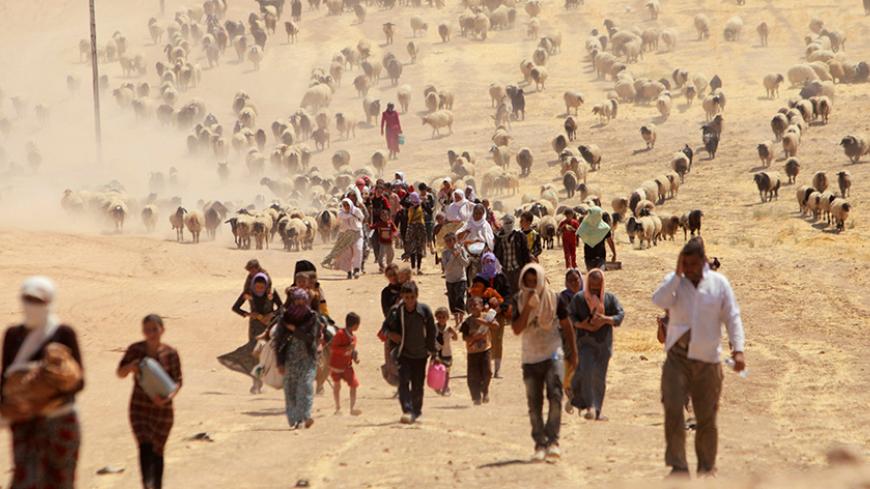BAGHDAD — With the imminent launch of the operation to liberate Mosul, announced by Iraqi Minister of Defense Khaled al-Obaidi on Aug. 8, the Chaldean National Council — which got together on the occasion of the second anniversary of the displacement of Christians from Mosul — expressed concern about the future of minority areas after the liberation operations end. Representatives of other minority communities share this concern about their areas; the Yazidis are concerned about Sinjar, the Turkmens about Tal Afar and the Shabak community, Christians and other minorities fear for the Ninevah Plains.
These areas are known as “disputed territories,” a description that deprives the minorities from determining their own fate, since it indicates that these areas have long been disputed by the Kurdistan Regional Government (KRG) and the Iraqi federal government.



